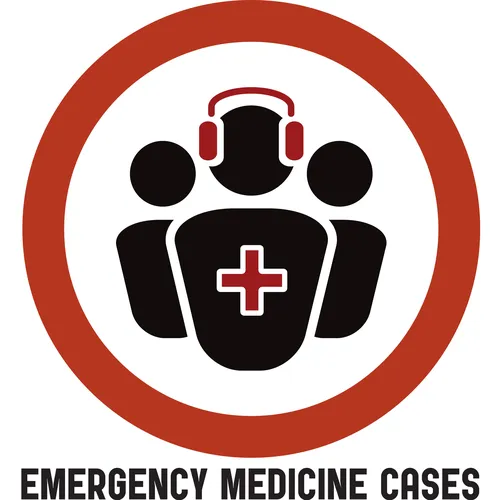Episode 85 – Medical Clearance of the Psychiatric Patient
- Author
- Dr. Anton Helman
- Published
- Tue 30 Aug 2016
- Episode Link
- https://emergencymedicinecases.com/medical-clearance-psychiatric-patient/
This is Medical Clearance of the Psychiatric Patient on EM Cases with Howard Ovens, Brian Steinhart and Ian Dawe.
Psychiatric chief complaints comprise about 6 or 7% of all ED visits, with the numbers of psychiatric patients we see increasing every year. The ED serves as both the lifeline and the gateway to psychiatric care for millions of patients suffering from acute behavioural or psychiatric emergencies. As ED docs, besides assessing the risk of suicide and homicide, one of the most important jobs we have is to determine whether the patient’s psychiatric or behavioral emergency is the result of an organic disease process, as opposed to a psychological one.
There is no standard process for this.
On the one hand, these psychiatric patients are high-risk medical patients. They not only have a higher incidence of chronic medical conditions, but they’re at greater risk of injury including serious head injury than the general population. The rate of missed medical diagnoses in the ED ranges from 8 to 48%, depending on which study you read, with the highest missed diagnosis rate amongst first presentations. We need to identify any and all acute medical emergencies. And the admitting psychiatric team certainly shouldn’t be burdened with a missed acute medical emergency.
On the other hand, psych patients can be a burden on the ED with the average length of stay in the ED ranging from 15 to 30 hours depending on the whether or not they require medical clearance and whether or not they are admitted. Lack of agreement between the ED and the psychiatry department can lead to the adoption of arbitrary exclusionary criteria which delay admission even further. And what about cost? In one study the total costs were $17,240 USD per patient requiring medical screening. So knowing that these patients are at high risk for acute medical problems that need to be dealt with before their disposition, while at the same time wanting to move them through the system efficiently, poses some challenges. An appropriate and accurate medical clearance process is imperative for decreasing length of stay in the ED and cost as well as identifying medical issues that may be causing or exacerbating the patient’s presentation.
So with the main objective in mind of picking up and appropriately managing organic disease while improving flow, decreasing cost and maintaining good relationships with our psychiatry colleagues, we have Dr. Howard Ovens, Dr. Brian Steinhart and Dr. Ian Dawe discuss this controversial topic...
Written Summary and blog post by Anton Helman Aug 2016 with background research by Anton Nikouline
Cite this podcast as: Helman, A, Ovens, H, Steinhart, B, Dawe, I. Medical Clearance of the Psychiatric Patient. Emergency Medicine Cases. August, 2016. https://emergencymedicinecases.com/medical-clearanc…chiatric-patient/. Accessed [date].
We Shouldn't be Calling it Medical Clearance of the Psychiatric Patient!
Medical clearance isn’t a term to represent the absence of medical issues, but rather the absence of medical instability or a medical condition causing or contributing to the behavioural presentation. Since it’s not possible to screen and diagnose all potential concurrent medical illnesses in the ED, some experts prefer the terms “evaluation for medical stability,” or “focused medical assessment of the altered patient”. When patients are labelled as "psychiatric" or "functional", we tend to bias our assessment of them.
General Approach to Patients Presenting with Behaviou...
